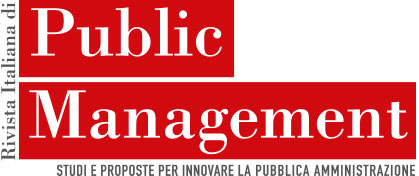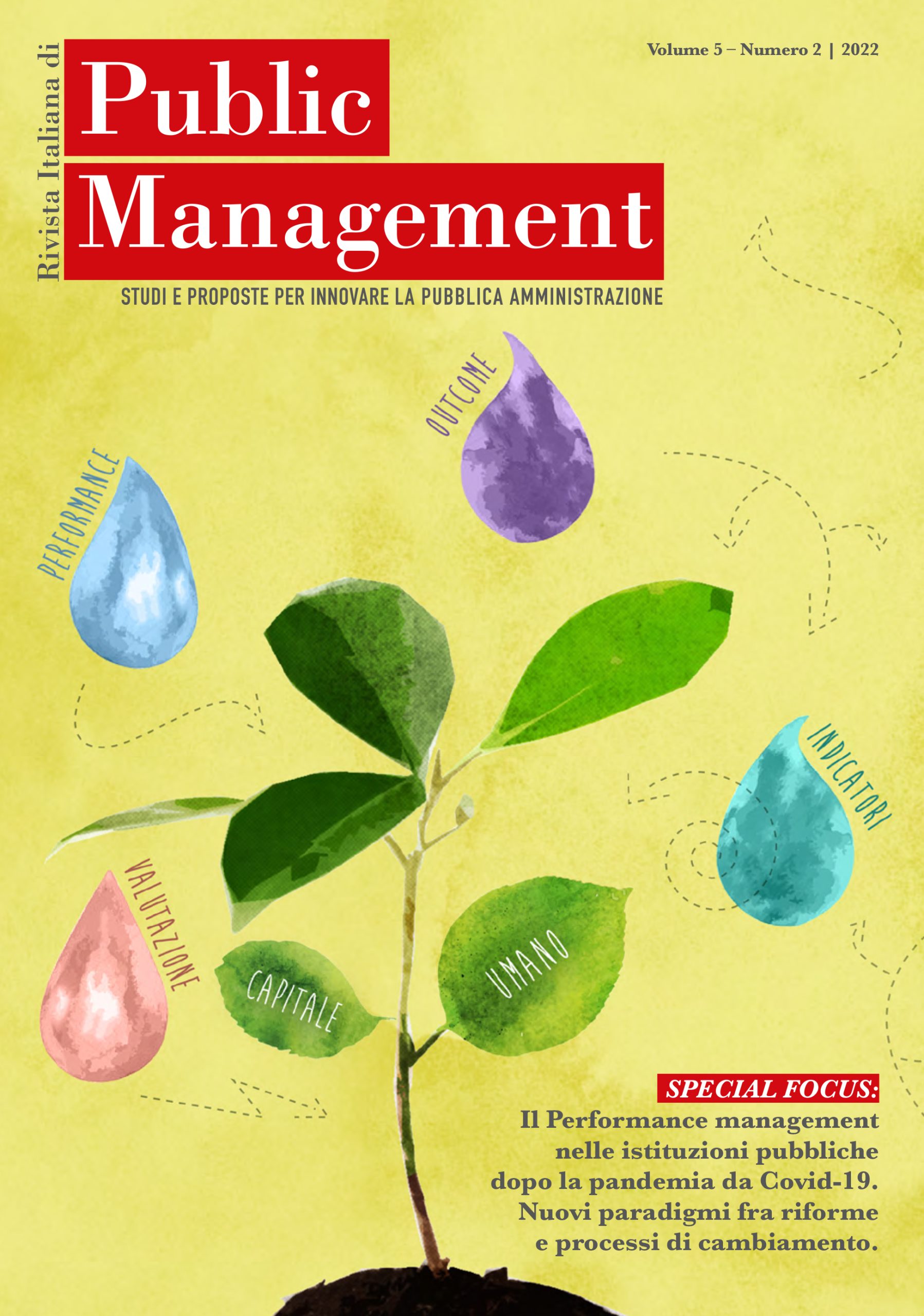Volume 5 – Number 2 – 2022
SPECIAL FOCUS
Performance management in public institutions after the Covid-19 pandemic. New paradigms between reforms and change processesFebruary 16, 2024
di Francesca Marzo - Scuola Nazionale dell’Amministrazione
Fabrizio Cafaggi - Consiglio di Stato
Cecilia Colasanti - ISTAT
Performance evaluation can become for public administrations a powerful organizational tool, also in the optic of a more pervasive adoption of work for objectives, as required by post-covid smart-working implementation.
Do you like it?
February 16, 2024
di Antonio Nisio - Università degli Studi di Bari Aldo Moro
Sabrina Spallini - Università degli Studi di Bari Aldo Moro
Patrizia Romanazzi - Università degli Studi di Bari Aldo Moro
This study aims to investigate the degree of acceptance of the Performance Measurement and EvaluationSystem (Pmes) in a public university and to understand its relationships with its Organizational Model(Om)
This study aims to investigate the degree of acceptance of the Performance Measurement and EvaluationSystem (Pmes) in a public university and to understand its relationships with its Organizational Model(Om)
Do you like it?
DIALOGHI
February 16, 2024
di Nicola Berni - Regione Umbria
Italy is characterized by towns, rural areas and smaller clusters linked by a solid network of relations, and larger cities, attracting people thanks to their wealth and public services. Remote rural areas have been facing a period of abandonment in favor of urban ones, with a decline in essential services.
Do you like it?
February 16, 2024
di Rosaria Spina - Azienda Ospedaliera per l’emergenza “Cannizzaro” – Catania
The aim of this article is analyzing the innovation of smart contracts in public administration. Moving from private sectors such as finance, media and insurance, smart contracts, based on blockchain paradigm, is a competitive factor in virtual market where stakeholders share outcomes and data.
Do you like it?
CLOSE UP
February 16, 2024
di Cristiano Trindade De Angelis - Skema Business School
The Recovery Fund has been chosen by Europe to tackle the crisis caused by Covid-19 and the Italian Nrrp is the largest economic and administrative reform involving the Italian country. Why the management of the allocated European resources and the planned reforms should be successful given the past critical experiences (for example in the structural funds expenditure)?
Do you like it?


